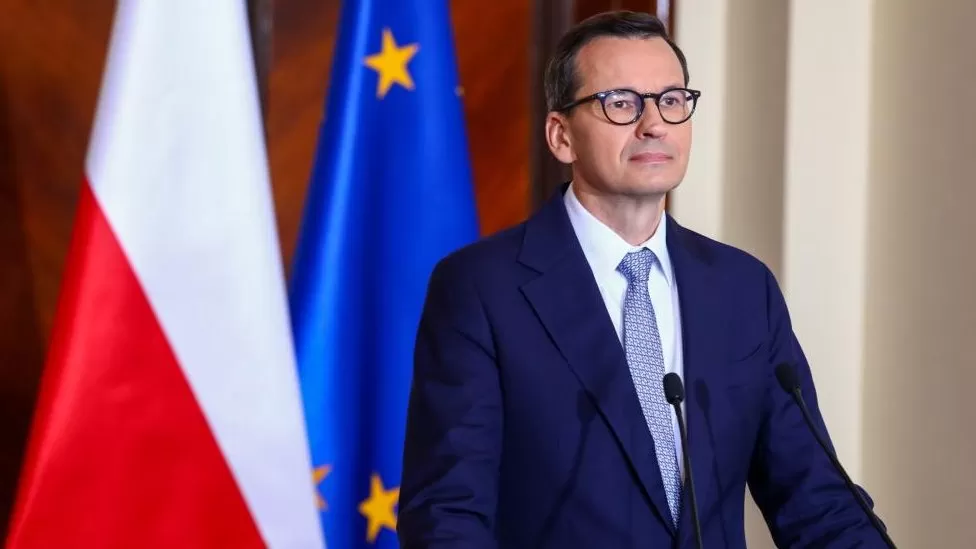The recent diplomatic dispute over grain imports has strained the relationship between Poland and Ukraine. The ban on Ukrainian grain imposed by Poland, Hungary, and Slovakia has led to tensions and disagreements.
Polish Prime Minister Mateusz Morawiecki announced that Poland would no longer supply weapons to Ukraine, stating that their focus is now on arming Poland with more modern weapons. Poland has already provided Ukraine with 320 Soviet-era tanks and 14 MiG-29 fighter jets, but has little more to offer in terms of military support.
The remarks from Prime Minister Morawiecki come at a time of heightened tensions between the two countries. Poland summoned Ukraine’s ambassador over comments made by President Volodymyr Zelensky at the United Nations, where he criticized some European countries for playing out solidarity “in a political theatre – making a thriller from grain.” Poland denounced these remarks as unjustified and expressed disappointment.
Despite the halt in weapon transfers, Poland maintains its commitment to supporting Ukraine in its fight against what Prime Minister Morawiecki referred to as the “Russian barbarian.” Poland’s military hub in Rzeszow continues to play a crucial role in this regard. However, Poland is determined not to allow its markets to be destabilized by grain imports, which has been a concern for Polish farmers.
Poland’s ruling Law and Justice party has been vocal in its defense of Polish farmers who feel threatened by imports of Ukrainian grain. The party has intensified its rhetoric in the lead-up to the upcoming election, scheduled for October 15.
The ban on grain imports from Ukraine by Poland, Hungary, and Slovakia has faced criticism from the European Commission, which emphasized that it is not up to individual member states to decide broader trade policies. Ukraine has filed lawsuits against these countries at the World Trade Organization, claiming that the bans violate international obligations.
Despite the ban, the three countries have stated that they will still allow the transportation of grain through their territories to other markets. The French Foreign Minister, Catherina Colonna, has stated that a study conducted by the EU revealed that Ukrainian grain imports would not harm European farmers.
As the dispute continues, both Poland and Ukraine are urged to adopt a constructive approach to resolve their differences. The situation remains tense, and the outcome of this dispute will have implications for the relationship between the two countries moving forward.
